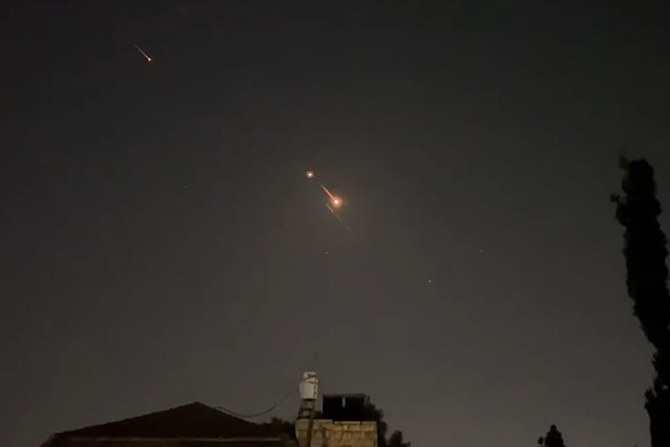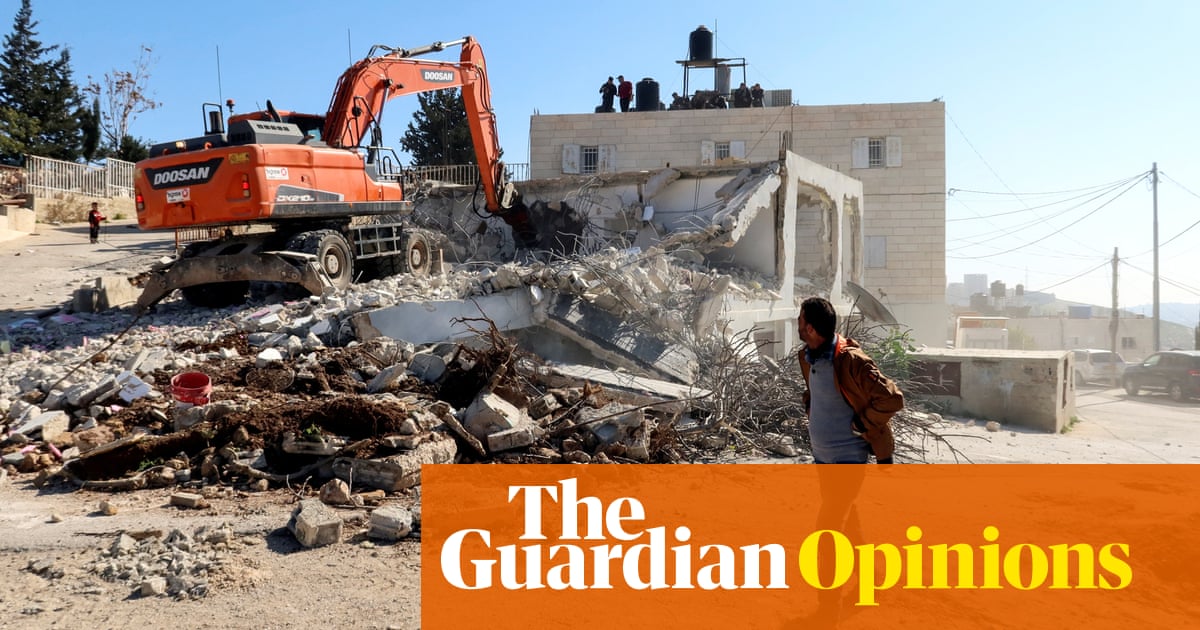
As Israelis reel from a Palestinian shooting at a Tel Aviv pub that killed three people, the government has threatened to strike back amid concerns of a broader escalation.
Security forces shot dead the lone attacker in the early hours of Friday after a manhunt by army troops, police and intelligence personnel. Residents of the city – Israel’s commercial and entertainment capital – stayed off the streets in the aftermath of the attack, which has heightened a sense of reduced personal security across the country after three other attacks in the last two weeks.
Israelis are bracing for more violence. “I hope there won’t be an escalation but the potential exists. This is a period in which we have to be ready to deal with things in every sphere,” said Shaul Shay, a former deputy head of Israel’s national security council.
As the defence minister, Benny Gantz, warned that anyone found to be supporting the attacks “will pay a heavy price”, the former Palestinian Authority minister Ghassan Khatib said Israeli military steps would only “pour oil on the fire”.
It is possible that Gaza, Jerusalem and Israeli cities with mixed Jewish and Arab populations could be drawn into the circle of violence, in a throwback to asymmetrical confrontations last May involving devastating Israeli bombardments in Gaza, and Hamas rocket strikes that spread fear across Israel.
The gunman in Thursday’s attack, which wounded 10, was identified as Raad Azam, from the Jenin refugee camp in the northern West Bank. Israeli military analysts predicted the camp would be subject to a major military operation.
The former prime minister Ehud Olmert said it was hard for Israel to halt attacks by individuals. “The problem is it appears these are not organised by a central body,” he said. “The less organised, the more difficult it is to monitor and stop.”
Caught in the middle are Israeli and Palestinian civilians. In Tel Aviv, Anat Einhar, a novelist and creative writing teacher, said she had spent tense moments verifying that family members were safe as sirens sounded, and her daughter had phoned her sobbing in fear.
The attack “creates feelings of instability, tension and suspicion”, she said. “But I don’t know that I will stop going out or stop my daughters from going out at the moment. If it continues it might cause me to close myself in.”
She was worried not only at the prospect of more Arab attacks but also that Jewish citizens carrying weapons in the street could become a new facet of life in Tel Aviv. “I’m worried that wariness and a mentality of force will become deeper and that distrust between Jews and Arabs will grow and that armed men will be going around Tel Aviv. I don’t want an armed, paranoid society.”
Adam Keller, a veteran peace activist, said the attack further undermined an already ineffective Israeli anti-occupation camp. He often rides the bus along Dizengoff Street past the pub where the attack took place. “There’s no way to know where the next Palestinian attack could be,” he said. “It’s completely random. Everybody could be the next target.
“Now we will see a big raid by the army, there will be resistance, people will be killed and there will be more motivation for attacks and so it continues. I know what the solution is, but I also know that after attacks is not a good time to send out press releases calling for an end to the occupation.”
In the occupied West Bank, the Palestinian Authority president, Mahmoud Abbas, condemned the attack while warning against actions by Jewish settlers that could fuel violence.
But most Palestinians appeared to welcome the killings. “Most people every day see inhuman actions by the settlers and by Israel so they feel this fighter represents revenge,” said Ramadan Safi, an electrical engineer and former political activist who was jailed during the first intifada uprising that raged from 1987 until the signing of the Oslo self-rule agreement in 1993.
“Every day in the West Bank and Jerusalem there are problems with the army and settlers. They are playing with fire. Most people feel this is reaction to all the actions of the settlers and the rightwing government.”
Safi said Israel’s ruling out of a political process with Abbas was fuelling tensions and that the number of settlers has risen markedly. “They are pushing Palestinians to the wall. Every family is thinking in the same way, that there is no hope under these circumstances.”
Khatib said what was needed was a political horizon. “Otherwise these vicious circles will continue for a while and then stop and then come again. I was 10 years old when the occupation started in 1967. These cycles are the story of our lives.”
Olmert, the former premier, took issue with those who blame the violence on the absence of a political horizon. “Terrorist actions cannot be justified. Period,” he said.









